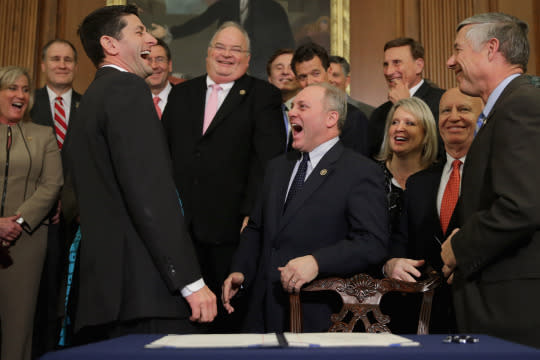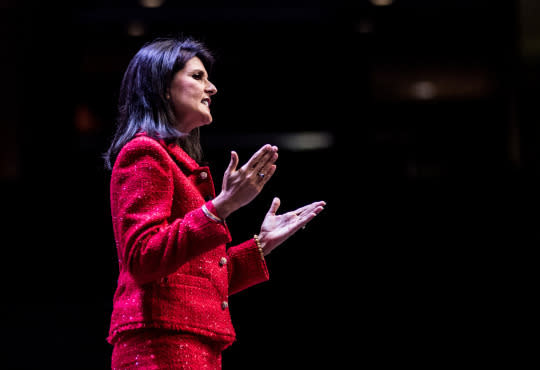Obama, with an eye toward history, will give a different kind of State of the Union
The White House is billing President Obama’s seventh and final State of the Union address as “untraditional,” an opportunity to move beyond the usual laundry list of policy proposals and ambitions toward a broader consideration of the president’s legacy and the country’s direction.
The president’s top aides have characterized this change in approach as a way for Obama to convey his optimism for the country and his hopes for how America might remember him. But the decision to forgo the usual catalog of ideas for congressional action says a lot about where the president finds himself, at the start of his final year in office, as he stares out at the joint session Tuesday. With both chambers of Congress run by Republicans and the city Obama once promised to unite more fractured and dug in than ever, there are very few items left on which this president and this Congress can come to agreement. Instead, as both Obama and the Republicans who run the legislative branch angle to help their respective parties win the White House, the fight has moved to the battleground of ideas and persuading actors other than the federal government to advance their respective agendas.
Obama’s pitch to the country will be that staying the course that his administration laid out, mostly through legislation in his first two years in office when Democrats had congressional majorities — and then through executive action afterward — will bring about a better America.
“[The president] wanted to step back and take a look at the future of this country, the challenges we’re going through, making sure that we’re focused on an economy that gives everybody a fair shot, this changing economy, making sure that we’re using all the elements of our national power to keep the country safe,” White House chief of staff Denis McDonough said Sunday on ABC. “He’ll be very optimistic. He’ll be very action-oriented. But it won’t be your traditional policy speech per se.”
Democratic Hill staffers, usually updated with extensive details on which policy items might be highlighted by the president, were unusually sparse on sharable details from the White House, with one senior Democratic congressional aide echoing the administration’s take on the speech: “Not a lot of focus on legislative priorities, but rather broad strokes and a thematic discussion of where the country is, and where its going,” the aide said.

House Speaker Paul Ryan shares a laugh with Republican members of Congress after signing legislation to repeal the Affordable Care Act and cut off federal funding of Planned Parenthood. (Photo: Chip Somodevilla/Getty Images)
Republicans believe that Obama’s address will play into the hands of new House Speaker Paul D. Ryan, R-Wis., who has used his first few weeks as Washington’s top Republican to try to change the dialogue around his own party in the same broad-brush terms the president intends to use Tuesday. Sitting behind Obama — who came into the House chamber in 2010 for his first State of the Union as the “change” president — will be a man who is trying to be the “change” speaker and keep his party from fracturing under from the weight of anti-establishment pressure on the 2016 campaign trail.
In 2010, Obama tried to leverage his still-recent mandate by demanding action from Congress on a half-dozen specific bills that had stalled, going so far to pit the Democratic-led House against the Democratic-led Senate. For his part, Ryan is embracing a more bottom-up approach with his new-found power, going from the State of the Union Tuesday night to a three-day policy retreat in Baltimore starting Wednesday, through Friday where he plans to hear out ideas from his members and help shape them.
Ryan’s selection of South Carolina Gov. Nikki Haley to deliver the official Republican response to the president’s speech reflects the speaker’s desire to promote a more positive and “inclusive” view of the Republican Party, and give it a younger face — like Ryan himself, who turns 46 in 2016.
An aide to the speaker said Ryan believes Haley “embodies a results-driven, visionary kind of governing,” “the American dream and upward mobility,” and stands for an “inclusive party with an inclusive message.”
Ryan will do plenty of press himself to promote the narrative of Republicans as happy warriors in the policy trenches, a regular weekly stakeout with Capitol Hill reporters and a radio blitz. Incidentally, his staff also bought Google ads to go along with search queries like “who is the speaker of the house?” anticipating that some viewers will be surprised to see a new politician in the speaker’s chair behind the president, which was filled previously by Democrat Nancy Pelosi of California and then Republican John Boehner of Ohio, whose sudden resignation led to Ryan’s ascent.
Of course, focusing on positive messaging is not all Republicans plan to do, especially in offices outside of Ryan’s — or even adjacent to it at the middle of the Capitol building.

Gov. Nikki Haley, moderator of the Heritage Action Presidential Candidate Forum, speaks to the crowd in Greenville, S.C. (Photo: Sean Rayford/Getty Images)
Senate Majority Leader Mitch McConnell, R-Ky., was fairly blunt in a Sunday morning talk show appearance discussing how little he buys of what the president is selling and previewing the likely Republican line of attack: that the president has been weak on foreign policy and that he does not have a plan to defeat the Islamic State.
“The president is going, I assume, to talk about the future and try to paint a rosy picture where one does not exist. What we’d love to hear from the president is a real plan to defeat ISIL,” McConnell told ABC’s “This Week.” “Instead he withdrew troops from Iran and from Iraq, entered into a very bad nuclear deal with Iran, the whole Middle East is in terrible shape. … So I’d like the president to step up here in the last year and lay out a plan for the defeat of ISIL. It’s a good starting place.”
Republicans have pushed especially hard on this front, turning to the issue of the Islamic State as a response to almost any question about Obama’s policy, most recently on the president’s executive action on guns. Those actions are sure to be a major theme of the State of the Union speech. The White House has announced that an empty chair in the first lady’s ceremonial box in the House chamber will honor the victims of gun violence.
The back-and-forth barbs traded in a crowded and buzzy Capitol Tuesday night will just begin to frame the existential choice Democrats and Republicans will face in choosing a president this year. As Obama looks to his legacy, few things matter more than the question of who will be standing in his place to give the next State of the Union address, and yet that selection is increasingly out of his control.
Watch the complete State of the Union and post-speech analysis hosted by Katie Couric right here tonight at 8:45pm Eastern.
